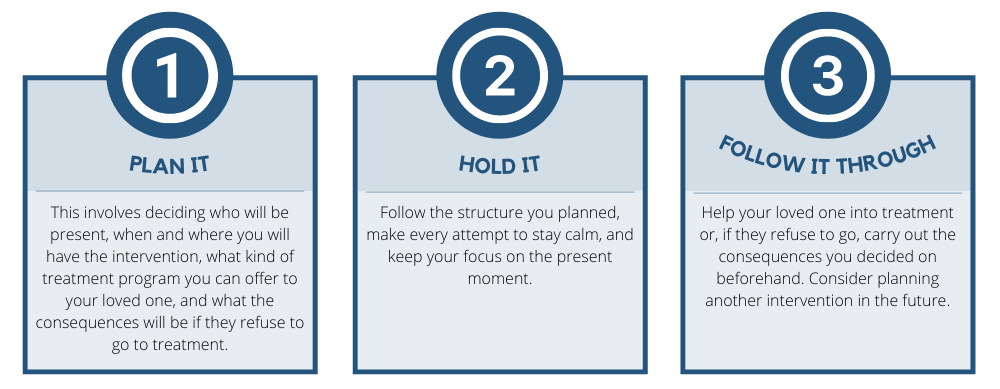Loving someone who struggles with addiction is hard. The worry, the frustration, the guilt–it can be an emotional and draining experience. As you watch their addiction grow and worsen over time, you may want to express your worry and encourage them to seek treatment. This conversation can be difficult. Your well-meaning expression of concern and your requests for them to get help might come across as shaming, judgment, or anger. Finding the right balance between love, concern, and urgency is important.
At some point, though, watching your loved one continue to live with the physical, emotional, and social consequences of their substance abuse becomes too difficult, and your loved one must get treatment. If you love someone with addiction, you may wonder how to force someone to go to rehab in New Jersey. This helpful guide contains steps to take to help your loved ones get the help they need.
Can You Force Someone to Go to Rehab?
In short, no, you cannot physically force someone to go to rehab. You can’t make them do the difficult physical and emotional work of addiction treatment. Completing a rehab program requires commitment and a desire to change–and these can’t be forced. You can, however, go through the courts and petition for involuntary commitment and a mental health evaluation.
Whether you force someone into treatment or not, you can offer your support. You can create conditions that help your loved ones realize that their life will be improved by overcoming their addiction. And, while you can’t force someone to go to rehab physically, you can stop enabling their addiction and encourage others to do the same.
Deciding to support someone who struggles with addiction and helping them get into rehab takes patience, commitment, and the desire to help from a place of love–not shame or punishment. When your heart and mind are in the right place, you will be ready to help your loved one get the treatment they need.
Steps You Can Take to Convince Someone to Go to Rehab
Once you have committed yourself to the process of helping your loved one get the help they need, you can take steps to encourage and support them.
Educate Yourself
Take time to understand the signs and stages of addiction. Learn about addiction and the treatment options available in your area. Consider the pros and cons of seeking treatment locally, and research available programs that fit any special needs. These may include medical conditions, mental illness, or personal and spiritual beliefs.
Take a Medical Approach
If possible, help your loved one set up a doctor’s appointment and offer to go with them. A medical checkup is a great place to start a conversation about addiction and treatment options. You can also talk about what you have observed–including changes to their physical or emotional health–as a result of their substance abuse.
Avoid Guilt and Shame
You may have complicated or intense feelings about your loved one and their struggle with addiction. It can be easy to slip into anger, frustration, or shame when discussing their addiction. People living with substance abuse and addiction do not choose this condition. While it may seem like they have control over their actions and choices, this is not the case. It is very important to avoid using guilt or shame to get people to go to rehab. Instead, focus on your concern and love for them.
Stop Enabling Behaviors
If you are giving your loved one money, stop now. Calmly inform them that you can no longer support them financially. This can be difficult, but you must cut off the flow of money that supports their habit. This alone can be a powerful tool in getting someone to go to treatment.
Stage an Intervention
An intervention is a planned event where friends and family members talk to their loved one about the effects of their addiction and encourage them to seek treatment immediately. It can be a powerful and effective way to get people to understand the depth of their problem and the urgency of this situation. If you plan an intervention, it is a good idea to hire a professional interventionist to assist you. Generally, planning an intervention involves:
- Choosing a time and place
- Selecting who will be there
- Deciding what the consequences will be if the person refuses to go to rehab
- Planning who will speak, and when
- Practicing the intervention beforehand
- Evaluating the intervention afterward
It may take a few attempts, but over time, your loved one may see that their life would improve if they were able to overcome their addiction.

Other Ways of Helping an Addict
People have many reasons for not going to rehab. These reasons might include their obligations at work and home, financial reasons, or lack of access to transportation. To truly support someone who struggles with addiction, you can offer assistance with these things so they can focus on healing. These include:
- Helping with childcare
- Taking care of pets
- Working with their employer to arrange for time off or take FMLA
- Assisting with funding for rehab–working with their health insurance or the rehab facility to come up with a payment plan
- Setting up grocery or meal delivery
- Taking care of their home while they are away–taking in mail, mowing the lawn, etc.
- Arranging transportation to and from rehab
- Emotional support–calls, visits, letters
Your loved one will need support as they work through their addiction and learn the skills they need to live life without drugs or alcohol. It takes patience and commitment to offer this to someone but seeing your loved one live a healthy, fulfilling life is worth it.
Find Help Convincing Your Loved One to Go to Rehab
If you or someone you love need life-saving addiction treatment in New Jersey, please reach out to the staff at New Jersey Addiction Interventions. We offer a range of programs designed to empower and support people at every stage of addiction and recovery. Call today to get started.
Medically Reviewed: June 24, 2021

All of the information on this page has been reviewed and verified by a certified addiction professional.

